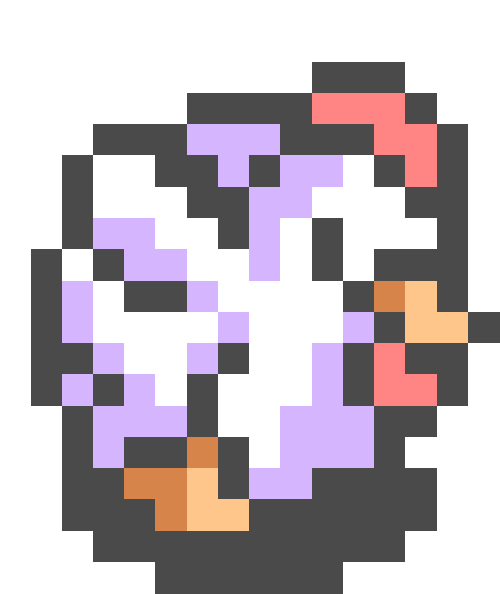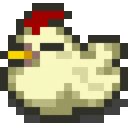 The Chicken Tender
The Chicken Tender
 The Chicken Tender
The Chicken Tender
![]() Home
Home
 Illnesses and Treatments
Illnesses and Treatments
![]() Chicken Diet
Chicken Diet
Chicken Psychology 101
Rooster Management
Shed Coops
- Excessive whining and crying
- Hard or squishy protruding lower belly (you may need to feel the bellies on some healthy chickens first to get an idea of what's "normal")
- No laying, laying soft-shelled/abnormal eggs, and/or laying straight-up liquid that looks suspiciously like egg.
- Yellow poop, especially if it has "scrambled egg" bits in it (it's basically misfired egg that's been "sous vide" inside their little bodies, making this the most conclusive evidence that your bird has egg yolk peritonitis). Poop may be vivid (almost neon) green if they've got an infection
- Fever (anything over 107f. You can try to get a reading with a temperature gun if you part the feathers and aim at the skin, but it can be difficult. Rectally can be challenging as well. Not a common way to diagnose.)
- Lethargy (lots of napping and hiding, a "puffed-up" feather appearance, and/or they're not jumping up onto the roost at night)
- Rapid breathing
- You've already done de-worming and maybe some brief antibiotic care but the problem isn't going away
-You've tried soaking your bird's butt multiple times but you're starting to suspect it's something other than egg-binding
NOTE: if your chicken has a squishy belly and no eggy poop, she may have ascites, which requires a diuretic and possibly weekly drainings. Sometimes egg yolk peritonitis and ascites occur together.
- Rich/poor diet (chickens fed scratch grains, cracked corn, seeds, mealworms/dried bugs, and table scraps are more susceptible)
- Lack of exercise and obesity
- Kidney, heart, or liver damage
- Stress, including overcrowding in the coop and run
- Extreme unsanitary conditions
- Cancer
- Infection (a "misfired" egg can block things and go septic)
- Other underlying health problems
- Removing Threats. Check the chicken yard for poisonous plants or animal bait and remove these. Trap predators and pests instead. If neighbors potentially have access to the chicken yard, add additional fencing or move your birds to a safer place. Secure compost bins and their contents. Lock up chemicals. Scour the yard for small pieces of metal and garbage. Increase coop and run size if insufficient in space. Clean coop and spread fresh dirt in the run.
- Antibiotics. You can get this from a vet. If not, check your medicine cabinet for antibiotics and look them up on poultrydvm.com for compatibility, dosage information, and more.
Personally, I recommend around 62.5 mg Ciprofloxacin, twice a day (every 12 hours). I've used this on a 4 lb hen with success. If you absolutely cannot do twice a day medicine administration, 62.5mg to around 100mg Metronidazole once a day should suffice.
If you live in a place without livestock drug restrictions, you may be able to obtain antibiotics from a farm supply store. If you can't, you can buy fish antibiotics, available without a prescription from most pet websites. Allivet.com is a good one. If you go this route, read this informative page I created about pills for more info.
Note: In my experience, chickens often need to be on an antibiotic for at least 2 weeks before results appear, which DOES go against the recommended period. So if you've given up hope at the 1 week mark, continue administering antibiotics anyway.
If you're fortunate enough to catch your bird's peritonitis in the beginning stages, sometimes antibiotics is enough to cure it. Sometimes it puts it off for a month or so and it comes back. Always have antibiotics on hand.
- Suprelorin (deslorelin), a hormone implant. It's chicken birth control. Pricey, but this is the one thing that's as close to a "cure" as you'll get. (It's not, but your chicken will think it is.) It's necessary if infection is reoccurring. I've had very good results with it. You may need to plead with your vet to install this in your bird, but they should have it on hand, as it's used in dogs. Once implanted, it's effective for about half a year, give or take a few months. It's cost varies, but if you live in an expensive US city, it can be close to $300 an implant (as of 2021). If you live in the UK, its cost is likely 1/5 of that. You may still need to keep your bird on antibiotics for a while after they get the implant, as they still need to re-absorb old egg.
- Surgery (not recommended unless you have an actual avian surgeon and you're fine with the risks.) Mortality for avian surgeries is notoriously high. Also, your hen will still need a hormone implant afterward. Before suggesting surgery, the vet will want to x-ray your bird. To do this, they'll likely need to anesthetize your chicken to get them to hold still. This anesthesia ALONE has a high mortality rate, so be warned. Some vets know how to use an ultrasound, possibly without any anesthesia, so that may be safer. Once they scan your chicken, this is what they'll tell you: "Yup, your chicken has some kind of weird liquid mass in there. No idea what it is, but it's probably cancer. You should put them down or do exploratory surgery. Here's some antibiotics and pain medicine." This is sound guidance, but it might not be what you're looking for exactly. I do recommend heading to the vet ASAP for medicine, though.)
- Rehydration, supplementation, and syringe-feeding. Syringe-feeding, also called force-feeding, is necessary if your bird has stopped eating or drinking. I recommend searching youtube for videos on it. Go slow and never shoot liquid straight in. Angle the syringe toward one of the bird's cheeks. Alongside water for rehydration, people on the BackyardChickens forums also recommend Nutri-Drench for Poultry, used as directed. For food, vets usually recommend you syringe-feed your bird with Kaytee brand baby bird formula (use package directions).
-Sub-Q or Rectal rehydration. It may be necessary if your bird hasn't consumed liquid in at least 2 days, refuses to be syringe-fed, and has crop stasis (a non-emptying crop likely caused by intenstinal blockage). At this point they're dying and it may be best to put them down. If your chicken manages to defecate, the stool will be dry and hard. This means severe dehydration and death is imminent. It's possible to persuade a vet to sub-cutaneously rehydrate your bird (with fluids under the skin). This will buy your bird a little time for the antibiotics to work (hopefully).
There's also another route. (Pun intended.) It's an older medical practice, but it does work. You can rectally rehydrate chickens with sterile water (boiled and cooled) and a lubed 1-3cc luer slip (oral) syringe. Your bird will need to be on antibiotics for this, as there's an infection risk. It may take awhile to find your bird's butthole under all that fluff (wetting feathers down can help.) Also your bird will be weirded out. Park your bird into a corner if you don't have an assistant to help hold your bird. Look closely and wear a headlamp if you need to! Talk to and reassure your bird. Only insert the tip of the syringe and administer the water slowly, don't blast it in or it will hurt. Only give up to 2cc/ml at a time, every few hours. The water should be lukewarm. Test it on your wrist first to be certain of the temperature. I've given this type of rehydration therapy before and it was life-saving. My hen had dry death poops, but after this, she started pooping again and then her crop cleared. Discontinue rectal rehydration once your bird is drinking again.
- A warm bed and shelter away from the flock (ideally inside). A spare room works. I make my birds a hospital bed in the hallway tub.
Bedding maintenance: even sick chickens defecate a lot. You can scrape and bleach old towels, use newspapers, or buy disposable puppy pads.
- A waterproof heating pad placed under their bedding will help with their aches. Make sure they have space to get away from it in case it gets too hot.
If you absolutely don't want to go the bedding route, get a big cardboard box and fill it with pine shavings or newspaper (warning: avoid cedar chips). Cut down the box if you want to give them access to the room outside it.
If you need to confine your bird, get a big dog crate and put it in the corner of a room. Load the tray with pine shavings daily. Keep the cage covered with a sheet to keep the mess down. If your chicken can still run around, letting them out with the flock during the day is fine.